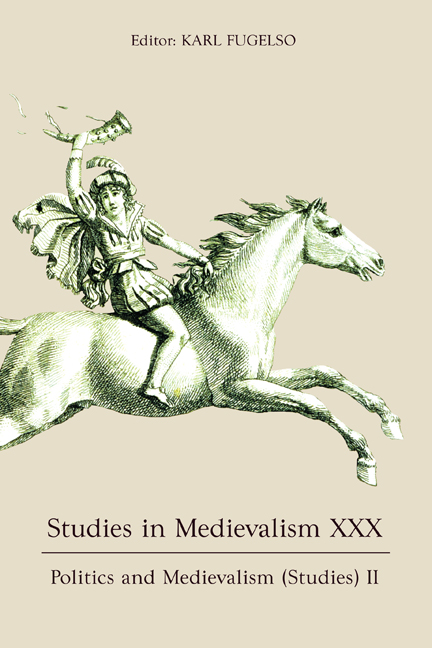“Once More into the Breach!”: Allusions to Agincourt and the Medieval Past in Cross-Channel Political Reporting of Brexit
Published online by Cambridge University Press: 24 March 2021
Summary
On June 26, 2016, American viewers of HBO's Last Week Tonight were suitably amused by the show's English host, John Oliver, soundly mocking the leader of the UK Independence Party, Nigel Farage, for having declared the previous Thursday, June 23 – the date of the Brexit referendum, when British citizens voted to leave the European Union – as the United Kingdom's “Independence Day.” In making this claim, Farage was openly courting a transient wave of popular appeal in an indirect reference to Independence Day: Resurgence, a remake of the award-winning 1996 film starring Bill Pullman, coincidentally released in British cinemas concurrently with the Brexit vote on June 23. Since then, however, and no doubt more in reference to Shakespeare's less ephemeral Henry V, the date came to be seen more as something of a new Saint Crispin's Day – recalling the Battle of Agincourt on October 25, 1415 – and not only in Britain, as one might expect, but also in France.
Indeed, occasional references to the Hundred Years’ War were already commonplace enough in the popular media on both sides of the Channel before the referendum, but this trend was exacerbated in the period leading up to the United Kingdom's formal withdrawal from the EU on January 31, 2020, corroborating the enduring reverberations their shared history of medieval conflict still exerts in the collective memory of both nations. Agincourt in particular is frequently trotted out by both sides, usually with a hint of sardonic humor, whenever a perceived breach between France and the United Kingdom is felt to be opening. For the French, the battle defines the quintessence of perfide Albion – the term of derision that for centuries has been reserved exclusively for what Jose-Alain Fralon and many of his compatriots have called their “most dear enemies,” the British – for the British, however, it represents the day Shakespeare's “happy few” insular underdogs overcame superior French forces on the continent to ensure “the greater share of honor” in their Sceptered Isle.
- Type
- Chapter
- Information
- Studies in Medievalism XXXPolitics and Medievalism (Studies) II, pp. 53 - 74Publisher: Boydell & BrewerPrint publication year: 2021

